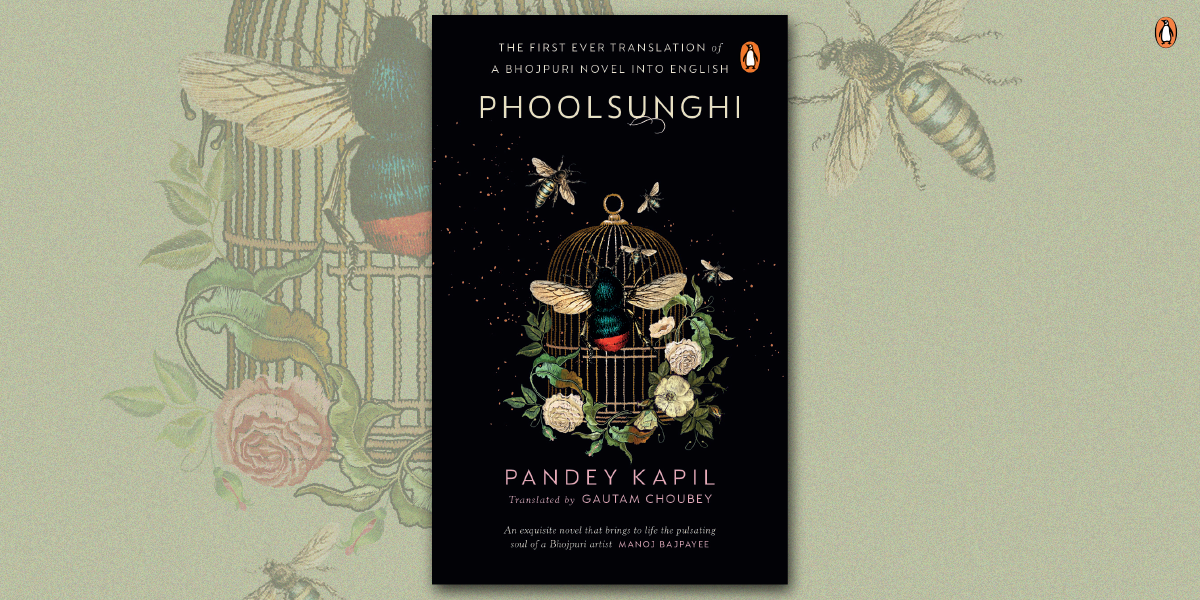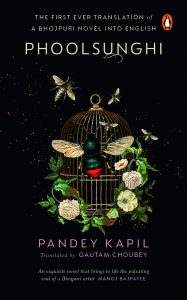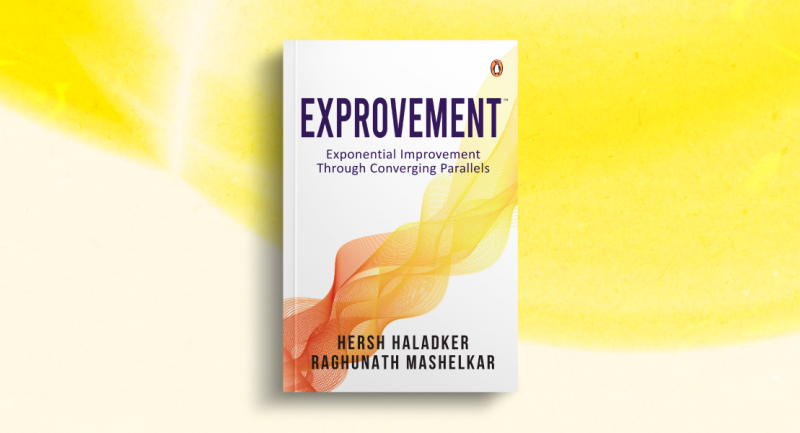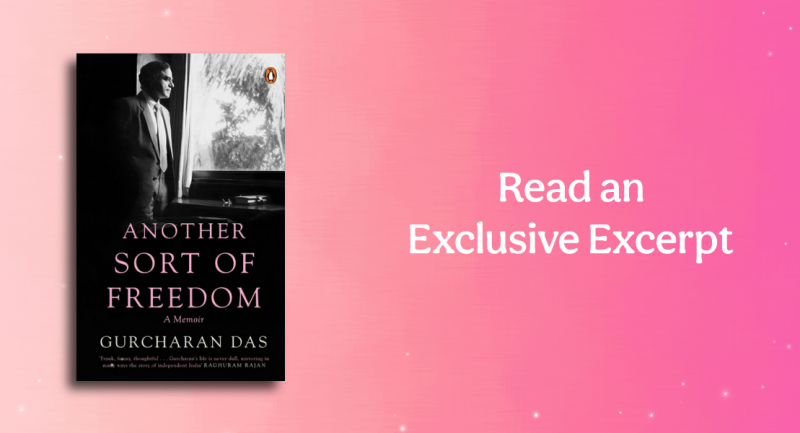
When Dhelabai, the most popular tawaif of Muzaffarpur, slights Babu Haliwant Sahay, a powerful zamindar from Chappra, he resolves to build a cage that would trap her forever. Thus, the elusive phoolsunghi is trapped within the four walls of the Red Mansion.
Forgetting the past, Dhelabai begins a new life of luxury, comfort, and respect. One day, she hears the soulful voice of Mahendra Misir and loses her heart to him. Mahendra too, feels for her deeply, but the lovers must bear the brunt of circumstances and their own actions which repeatedly pull them apart.
In this excerpt, we are introduced to Dhelabai from Pandey Kapil’s Phoolsunghi, translated from the Bhojpuri text by Gautam Choubey.
Dhela!
Dhela or ‘stone’ was what she had come to be called.
Once, her nautch triggered a violent street fight amongst her fanatic admirers, and in the ensuing mayhem, stones were hurled. That same day, she ceased to be known by her real name and became famous as Dhela.
She was a queen among beauties and an unchallenged sovereign in the realm of music and dance. When the fingers of the accompanist moved briskly over the taut head of the tabla, her skirt swirled like a whirlpool in an ocean. And when mellifluous songs flowed from her lips, it seemed as if her throat was a flute upon which the wind was playing resonant tunes. One could liken her to Menaka, or perhaps to Urvashi, the celestial nymphs. This tawaif from Muzaffarpur, once the foremost city in the ancient republic of Vaishali, was as majestic as Amrapali—the fabled royal courtesan of that province.
Once upon a time, a famous tawaif called Janakibai lived in Prayagraj. It is said that a devoted admirer of Janakibai was so completely besotted with her songs that he lavished all his wealth on her. However, he had never seen her face, not even a fleeting glimpse, for she always wore a veil. One day, as she absentmindedly lifted her veil and he caught sight of her dark and pockmarked face, he was shocked beyond belief. Could a sound so sweet emerge from a source so repulsive? As his world came crashing down, he exploded with rage and in a fit of uncontrolled fury, stabbed her over and over again. Janakibai miraculously survived the fifty-six stabs and got a colourful new moniker—Chappan Churi or fifty-six knives.
Like Chappan Churi, Dhela, too, once had a real name. She was Gulzaribai. True to her name, she was a gulzar, a blooming garden of flowers. She was blessed with moonlike radiance and the beauty of a heavenly nymph. But, the deeds of a few fanatics, who clashed over her and engaged in a vicious stone-fight, got her forever renamed to Dhela, alias Dhelabai.
Dhelabai’s fame spread-out in all directions just like the rays of the rising sun. When it reached Babu Haliwant Sahay, a powerful zamindar from Chhapra, he rushed to Muzaffarpur to marvel at her splendour. However, when he returned home after meeting her, he was lovelorn and crestfallen. Haliwant Sahay’s middle-aged body was home to the soul of a young rasik—a devourer of pleasure. Dhelabai’s luscious body and her seductive fragrance had filled his heart with unbearable longings and weakened his scruples. Yet, for him, she remained painfully unattainable.
The words that Dhelabai uttered to repulse his advances were steadfast and sacred, like a church bell. But he felt as if they were a dagger plunged into his heart; they had inflicted a wound whose pain pulsated through his veins. She had said, ‘Babu Sahib! You must have heard of a phoolsunghi—the flowerpecker—yes? It can never be held captive in a cage. It sucks nectar from a flower and then flies on to the next. I come from the community of tawaifs. Members of my community are like a phoolsunghi. Having After sucking money from one pocket, we quickly set out looking for another. Go back home. Spare a thought for your advanced age and spend the remainder of your days saying prayers and chanting the holy name of Lord Ram.’
However, as he descended the steps of her nautch- house, Sahay did not forget to warn her, ‘Dhela, my pocket is a limitless fountain of riches. I have no doubt that any phoolsunghi will gladly agree to a life as a captive in my golden cage. Her beak isn’t big enough to suck all the nectar from my pocket. And, as to my age, let it be heard that Haliwant Sahay earns his money believing he’ll never die. And he lives his life as if he were forever young, like the Ashwinis, the ever-youthful twins of the sun god. It’s all right for now. When the time comes, you’ll know the hollowness of your own sermon. I am returning home to build a palace for you; a golden-cage for a phoolsunghi. Trapped inside that cage, the flowerpecker will remain perfectly satisfied with a single flower and chirp merrily around it.’
Upon hearing these words, Dhela burst into laughter—a laughter so resonant that it sounded like the harmonized tinkling of a thousand golden bells, all arranged in a long single row. Sweltering under the blaze of that withering laughter, a gloomy Haliwant Sahay retreated to Chhapra.

Phoolsunghi
Pandey Kapil
The first ever translation of a Bhojpuri novel into English, Phoolsunghi transports readers to a forgotten world filled with mujras and mehfils, court cases and counterfeit currency, and the crashing waves of the River Saryu.








